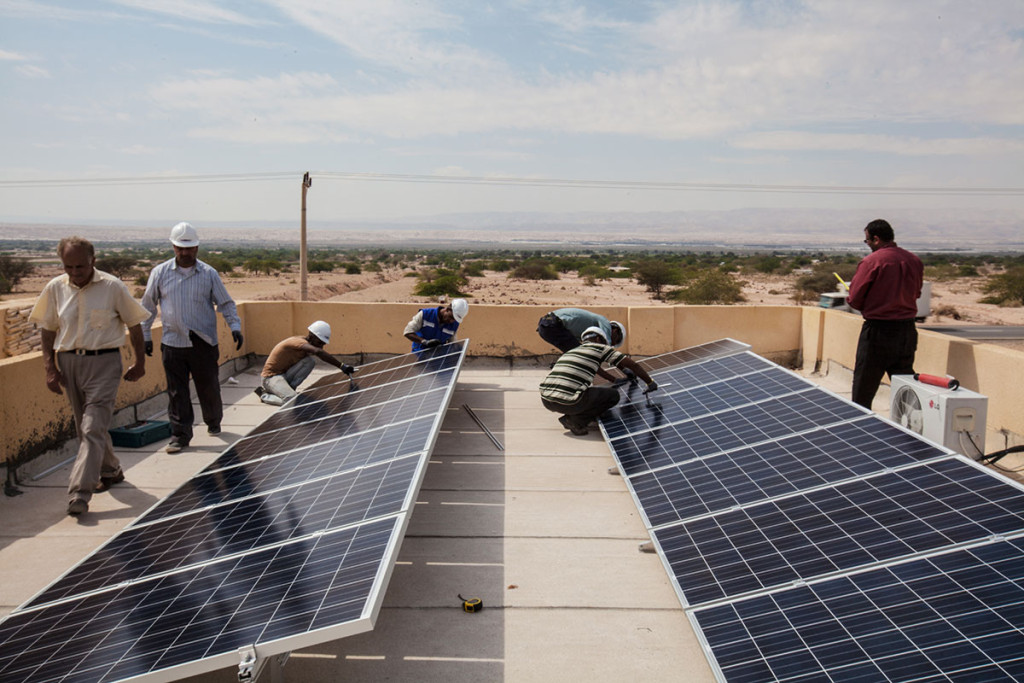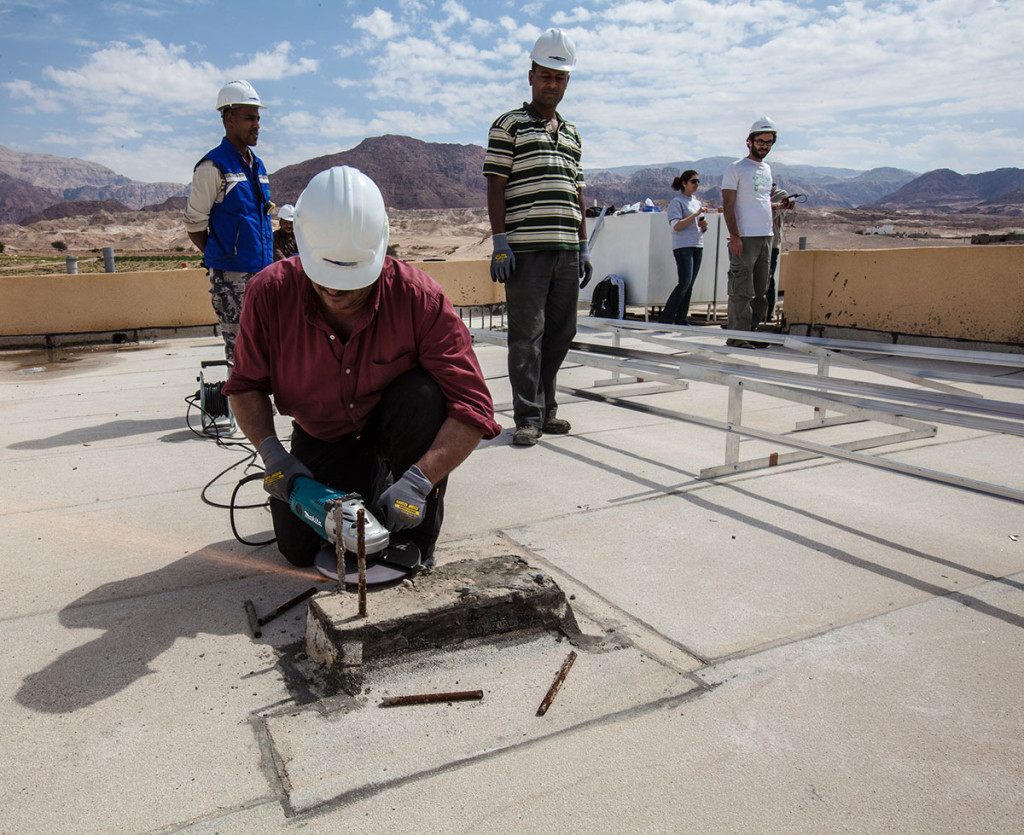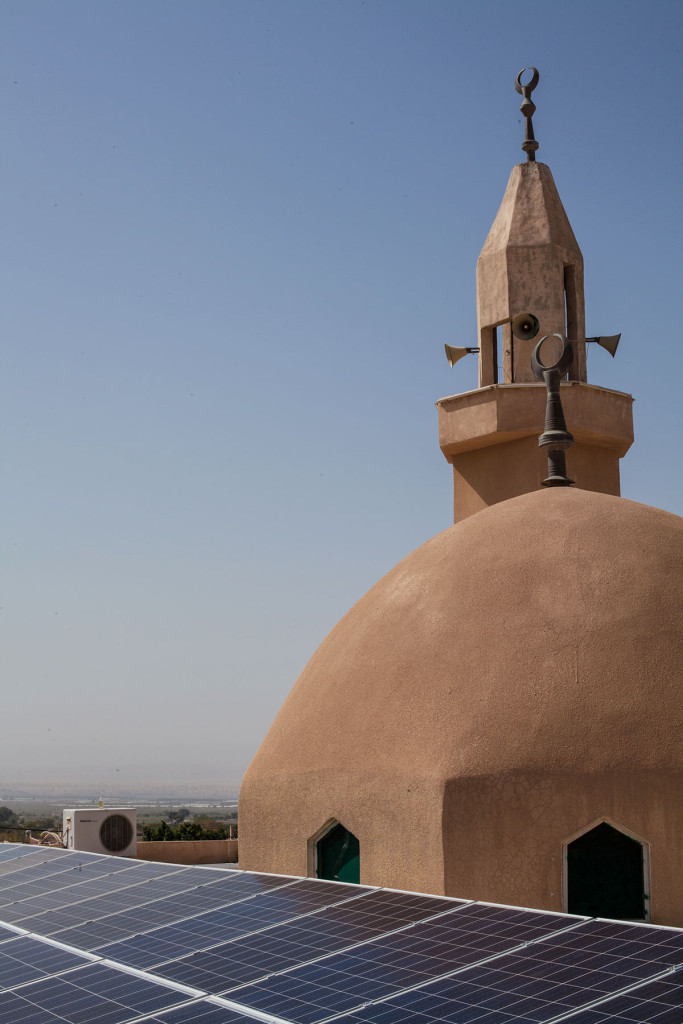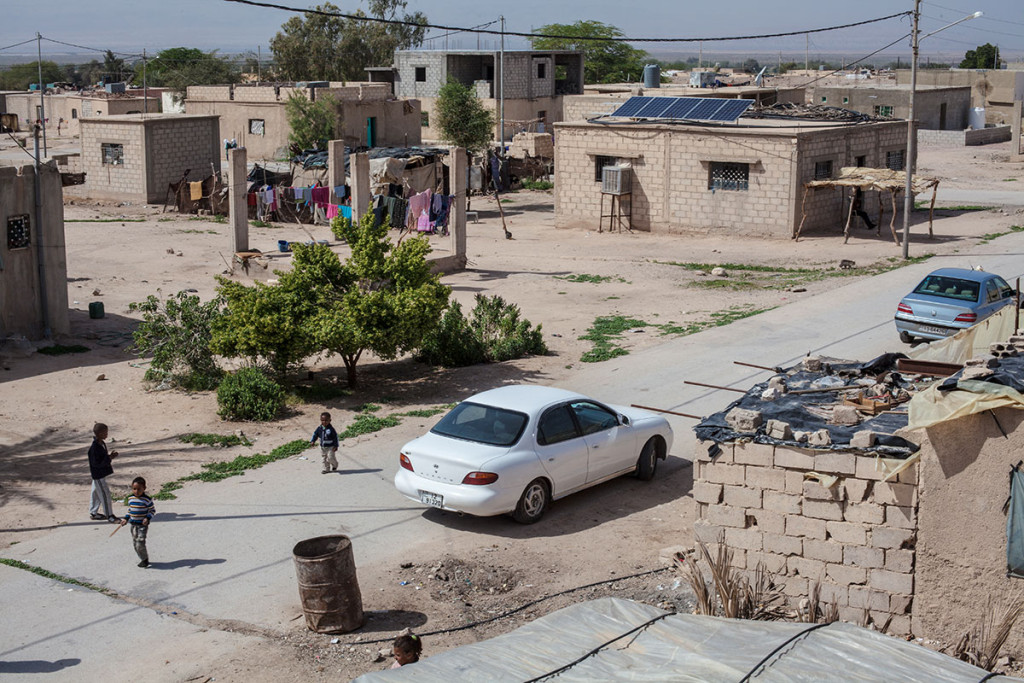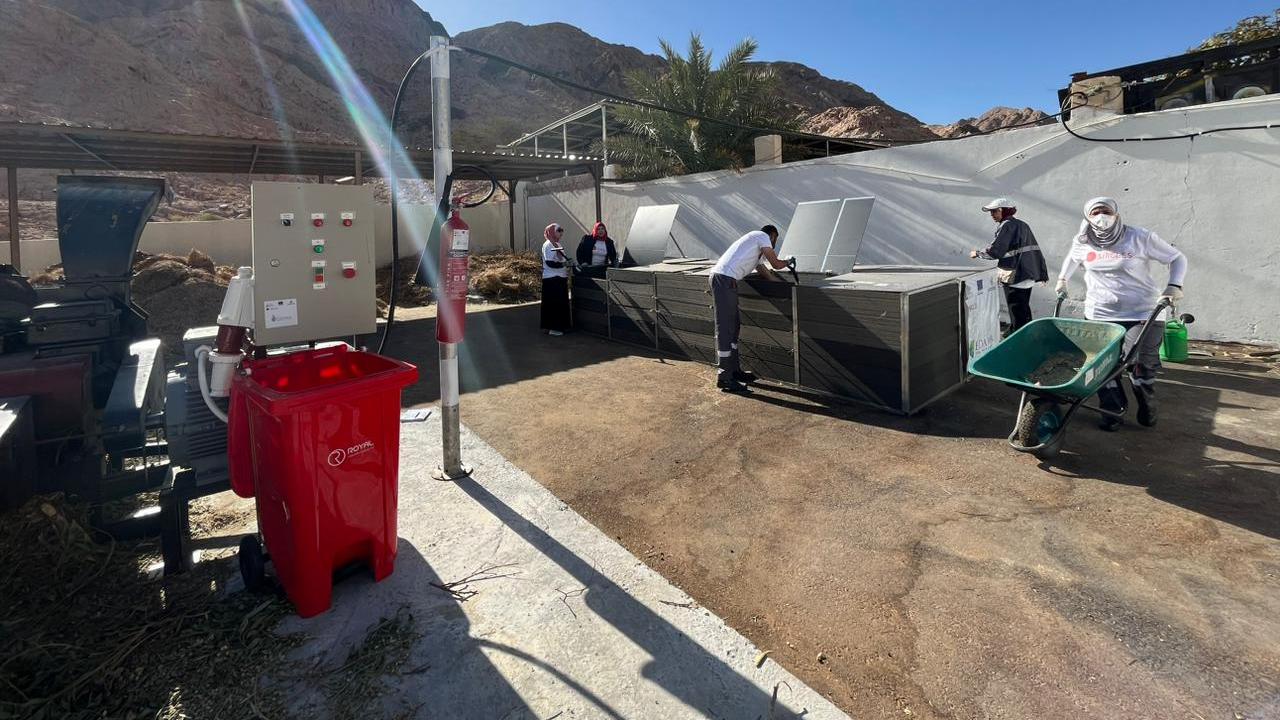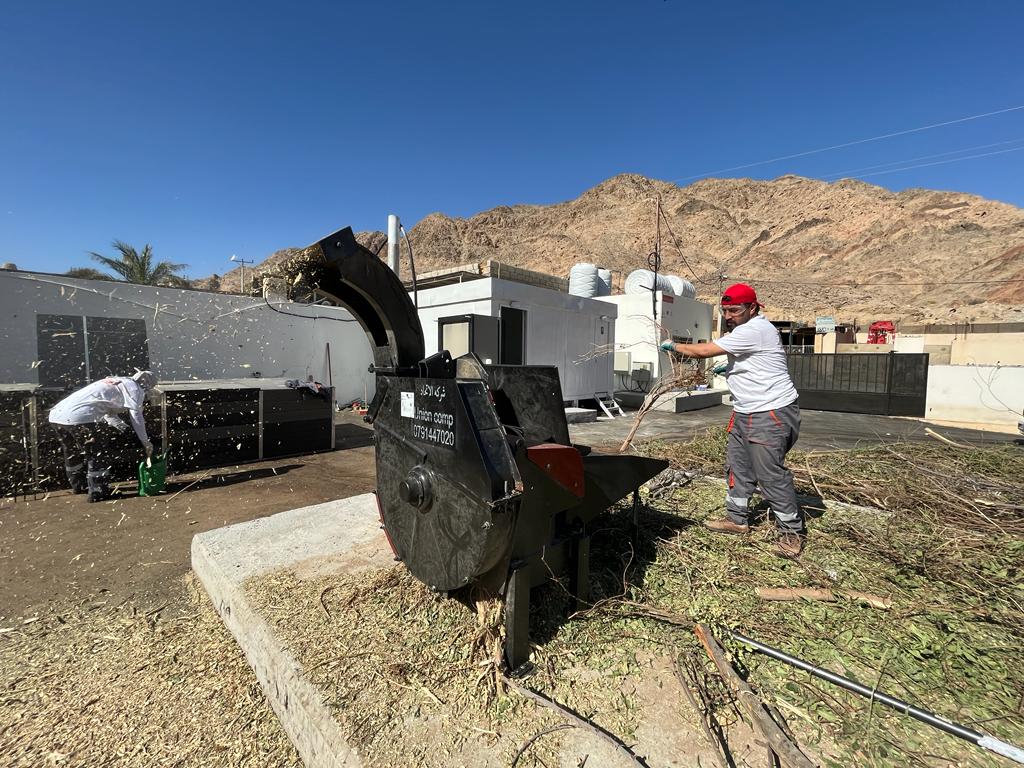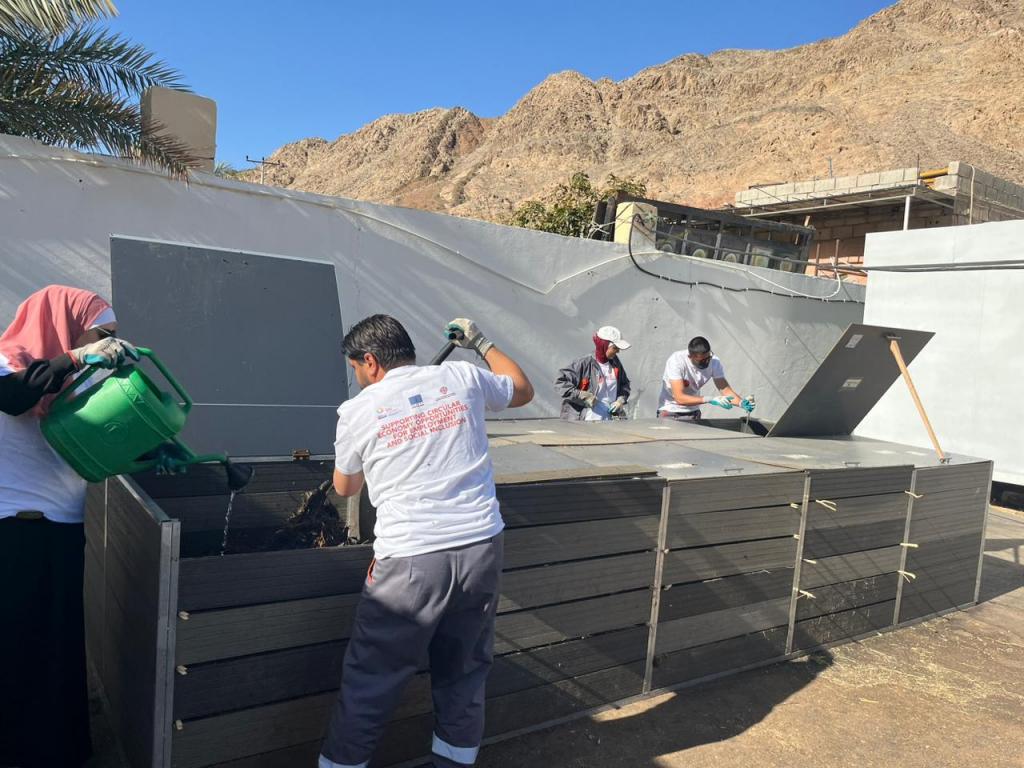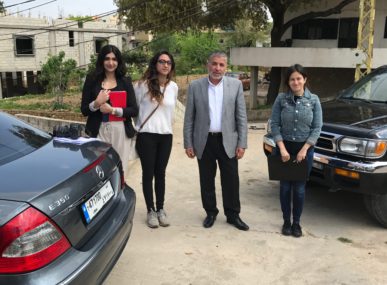In Arabic, EDAMA translates to sustainability, a good explanation of the association’s focus. Created in 2010, EDAMA brings together stakeholders in the fields of renewable energy, and natural resources, in order to build their capacity and drive action.
Fefa, Jordan
Renewable Energy and Energy Efficiency
EDAMA is switching up villages across Jordan, transforming them into the eco-villages of the future. The professional association promotes the effective management of resources, water and renewable energies across the country, and have created the eco-villages project since 2015 to help this mission along. That project involves implementing photovoltaic solar systems in poor Jordanian villages in order to improve the quality of life and reduce energy costs. Other projects involve the employability of underpriviliged Jordanians and refugees in the energy and waste management sectors. In total, so far twenty two projects have seen the lights advancing Jordan’s movement towards a green economy.
The making of a Jordanian eco-village:
The first eco-village was created in Fefa, a small community at the southern edge of the Jordan Valley. The area was already protected by the Royal Society for the Conservation of Nature (RSCN). With 3,700 residents and a warm and sunny climate, Fefa was the ideal setting for the trial solar project.
To transform the village into an eco-village, solar panels were installed on main public buildings, including a mosque, nursery, health center, and schools. Solar street lights were also installed in a Bedouin area that previously did not have electricity. That entire photovoltaic system was able to cover 30% of the energy consumption of the village.
To ensure the longevity of the eco-villages, village representatives are involved in raising awareness within the local community, impressing on residents the many advantages of photovoltaic systems. The message is simple: beyond their low environmental impact, solar systems also mean reduced energy costs and an uninterrupted supply of electricity.
Several years in, the project has not only improved the quality of life for the inhabitants of Fefa, but has also engaged the community in the sustainable development process. Four residents have benefited from renewable energy training, and are now responsible for the maintenance of the installation.
After the success in Fefa, EDAMA has worked on many new eco-villages in the south, opening new economic prospects for the renewable energy sector in Jordan.
Sustainable waste management projects:
As part of SIRCLES project, EDAMA, its Jordanian partner, is leading the composting pilot project in Aqaba. The project focuses on building new capacities oriented towards business development, separation, collection, and composting of biowaste. The Aqaba region and the composting location have been carefully selected by the business association in partnership with the Aqaba Special Economic Zone Authority (ASEZA) due to its high food waste generation from the hospitality industry.
The facility has been officially operating since February 2023 and receiving organic waste from hotels. The eight trained locals are managing the composting facility, regularly monitoring waste temperature levels, moisture levels, and pH levels, ensuring an efficient breakdown of the organic matter into nutrient-rich compost. This marks a major milestone in reducing the amount of waste in landfills and improving soil fertility in the city.
On the other hand, as part of Med4waste project, Edama is contributing to the implementation of an Integrated Municipal Waste Management Plans in Madaba and Berain while creating green jobs.
Website: http://www.edama.jo
Photos: Courtesy of EDAMA and Sircles projects
